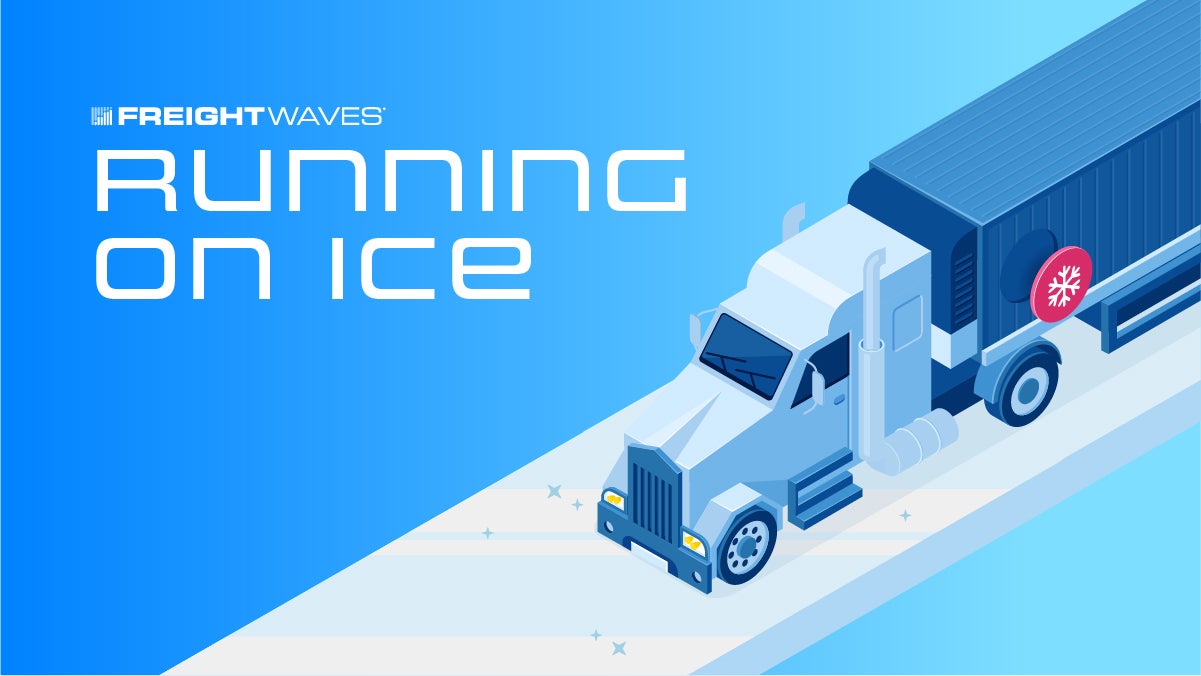Welcome to Check Call, our corner of the internet for all things 3PL, freight broker and supply chain. Check Call the podcast comes out every Tuesday at 12:30 p.m. EDT. Catch up on previous episodes here. If this was forwarded to you, sign up for Check Call the newsletter here.
In this edition: A partnership formed to fight freight fraud; what is the future of e-commerce?; And cross-border freight gets a tech infusion.

Everyone is talking about freight fraud and it appears to be running rampant through the industry, but how often is it really happening and what does that fraud look like? The Transportation Intermediaries Association and the International Factoring Association have decided now is the time for answers.The two organizations have partnered to release a quarterly report highlighting how often fraud happens, what commodities are most targeted and how much the fraudulent acts are costing shippers, brokers and carriers annually.
The first edition of the report is expected to come out in Q2. I personally am looking forward to the data. It’s one thing to hear about fraud happening to co-workers and other organizations in the industry. But to know potentially what commodities are being targeted and be able to develop a plan that allows for the safe passage of goods would be game-changing — especially when it comes to value-added services most 3PLs offer shippers.
Anne Reinke, president and CEO of the TIA, was quoted in a Truckers News article saying, “We do not feel that the federal government, FBI or local police are understanding the extent of fraud that happens in the supply chain industry. Fraud costs victims an estimated $500 million to $700 million in freight payments annually.”
Saving even a fraction of that for customers would be quite the service to offer.

The future of e-commerce should be at the forefront of any supply chain professional’s mind, especially after the e-commerce boom in 2020 and 2021 as a result of the pandemic. Freight is cyclical and it’s only a matter of time till it happens again, hopefully without the pandemic.
In the hopes of getting ahead of the next e-commerce boom, warehouse operators are wondering what the future of e-commerce distribution centers will look like. Will it be dark and full or robots, or will it be automation mixed in with a labor force?
Geodis is taking a stab at what it might look like for the company with its 400,000-square-foot e-fulfillment center near Columbus, Ohio. This new facility, working primarily with the retailer Maurices, known for offering all sizes of women’s clothing, handles direct-to-consumer orders, store replenishment and buy online/ship-to-store from a single inventory with minimum touches.
Using automation to take packing and order fulfillment to the next level is key, especially when the more touches an item has to have in the fulfillment process, the more opportunity for delays.

TRAC Tuesday. This week’s TRAC lane takes us to the South. As most of the Midwest is under a blanket of ice and/or snow and the Northeast remains constant in its mountains of snow, heading down to the land of sunshine and temperatures not in the single digits is actually not a bad idea. Spot rates going from Atlanta to Jacksonville, Florida, are on the rise. Spot rates for this 300-mile trip are at $3.19, about 77 cents higher than the National Truckload Index. Capacity isn’t squeezed completely in the two markets, but given that there is a strong chance of getting reloaded in Jacksonville, it’s not a bad route for most carriers. That said, brokers try not to drive the rates down too much as it’s a rough time for most carriers.

Who’s with whom? Coming to a cross-border solution near you is Cargado, a new venture by Matt Silver, founder and former CEO of Forager. Cargado will “will address the unique challenges of moving freight between the U.S. and Mexico using innovative new technology,” Silver said. Nearshoring might be one of the hottest things in the supply chain right now, and given that Mexico is likely to be the U.S.’ top trading partner for all 12 months this year, any sort of technology or improvements that can be made to keep shipments running smoothly is a win.
An article by FreightWaves’ Noi Mahoney quotes Ty Findley, leader of Cargados’ pre-seed round of funding, saying, “In order for the renewed attention on making North American supply chains more resilient to succeed, our close trade partners in Mexico have to also succeed in advancing their nearshoring supply chain capabilities.”
Previously on Check Call the show, we sat down with the one and only Mitch Mitchell to deep dive into the world of dynamic pricing and what the future of pricing looks like — basically how to make your TMS work for you and do the heavy lifting when it comes to pricing and having software that generates operational efficiency. No operations person wants to sit down and spend 15 minutes on just the back-end processes to get a load booked.
The more you know.
Aldi turns to AI to strengthen freight management
What is genuinely new in supply chain management?
United States reverse logistics market emerges as a critical component
C.H. Robinson says eBOL collaboration now includes 10 major LTL carriers












